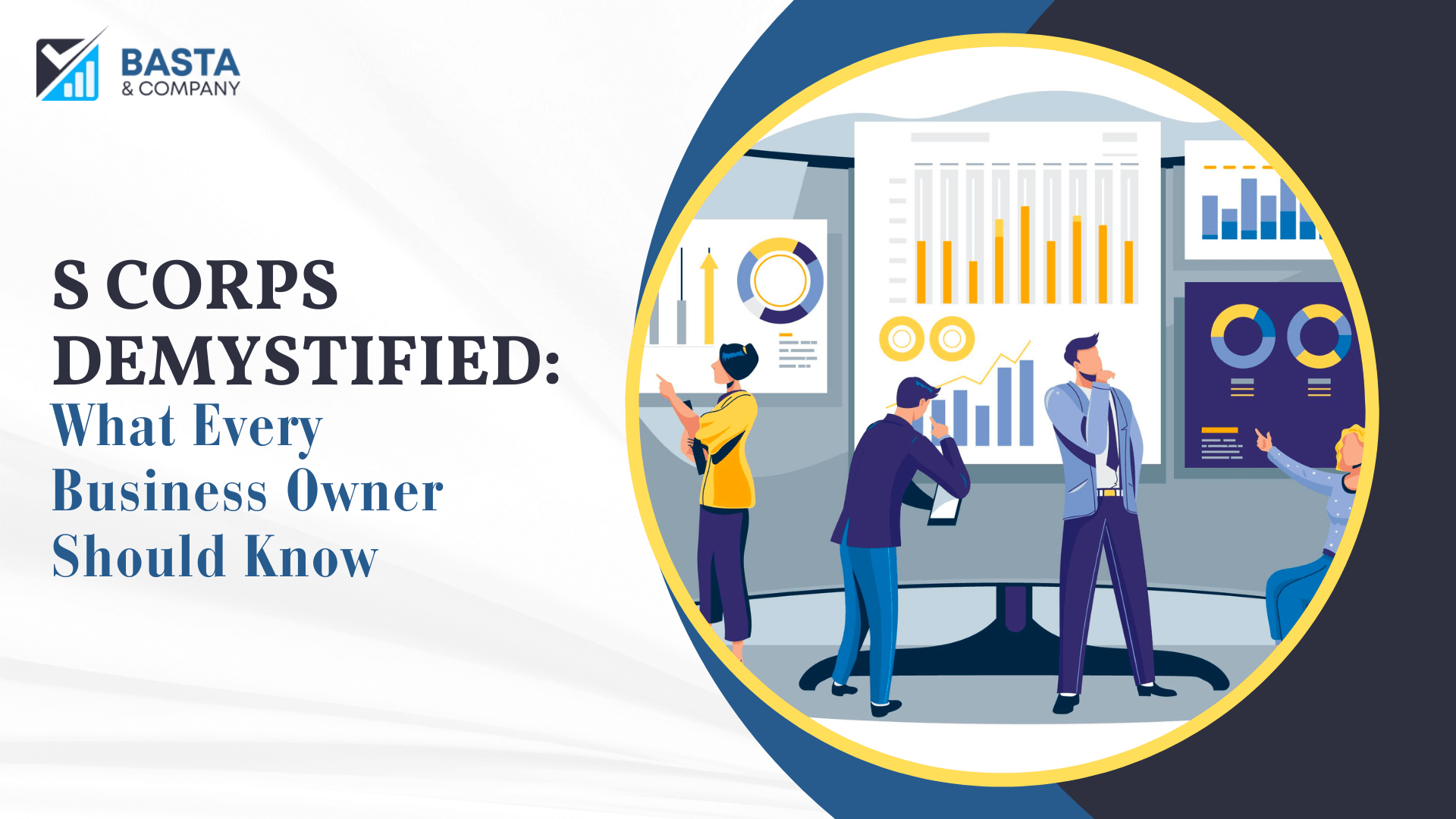
S Corps Demystified: What Every Business Owner Should Know
Webmaster • August 9th, 2024
Hey there, business owners! It’s your friendly neighborhood CPA here, ready to chat about a topic that might sound as exciting as watching paint dry, but trust me, it could be a game-changer for your business. Let’s talk S Corps!
Imagine you’re at a buffet (stay with me here). You’ve got your regular corporation (C Corp) on one side, and then there’s this magical line that, if you cross it, suddenly changes how your plate (aka your business) is treated come tax time. That magical line? That’s the S Corp election.
An S Corp isn’t actually a different type of business structure. It’s more like a special tax status that certain corporations and LLCs can choose. Think of it as a VIP pass in the world of business taxation.
Not everyone gets to join this exclusive club. To qualify, your business needs to:
If you meet these criteria, congratulations! You might just have a golden ticket to S Corp status.
It’s not all sunshine and rainbows in S Corp land. Here’s the real talk:
S Corps can be a fantastic option for many small businesses, offering tax savings and benefits that make many owners do a happy dance. But like anything in business (and life), it’s not perfect for everyone.
Before you jump on the S Corp bandwagon, take a good, hard look at your business goals, chat with a tax pro (hey, that’s me!), and weigh the pros and cons. Your future self (and your wallet) will thank you for doing your homework.
Remember, choosing your business structure is like choosing a life partner – it’s a big deal with long-term consequences. So take your time, ask questions, and make the choice that feels right for you and your business baby.
Until next time, keep crushing it in the business world!

Samy Basta brings you more than 20 years experience in tax, financial, and business consulting to his role as founder of Basta & Company. His focus is primarily strategic business planning, empowering clients to set priorities, focus energy and resources, and strengthen operations. In addition, Samy and his firm provide strategic counsel, and technical insight, on a wide range of needs, including tax saving strategies, tax return compliance, as well as choice of entity.